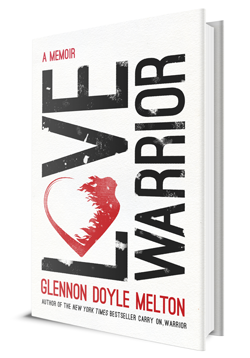Do you have a shame story that you’re afraid to tell?
Do you have a secret narrative that’s running the show of your day-to-day life?
If so, you are not the only one. Let me tell you a story about a time when an untold shame story hijacked my day a few years ago.
It started with a bunch of ripe avocados on our kitchen counter one morning.

When I saw them, I realized that one of two things had happened.
Either my husband Jonathan was planning to make guacamole and had left the avocados out to warm up … or he’d intended to make guacamole and then left them out by mistake.
What would I do? Jonathan was asleep, and I had a choice to make. Would I step in to try and “fix” the avocado situation, or would I let them be?
It would be nice to say that I chose the saner option, but I didn’t. When I tried to leave the avocados out, the anxiety felt like too much to handle, so I put them back in the fridge.
My reasoning went like this: If I put them away and Jonathan wanted them out, he might be annoyed.
But if he had made a mistake and I didn’t “help” by correcting it for him, then he’d shame me for not anticipating his needs.
I forgot that Jonathan doesn’t actually do that. (Oops.)
The psychological term for what I did that morning is transference. I reenacted old scripts from childhood in adulthood.
Because here’s the thing: in times past, I was shamed for not putting away other people’s metaphorical avocados.
And as a result, I told myself this story: I must anticipate others’ needs perfectly, or else I will not be loved.
This is a really tiring way to live.
Fortunately, I started writing down my shame stories, which helped me to let go of some painful beliefs.
Our latest guest knows so much about how storytelling can help people to heal.
Today, I’m thrilled to welcome you to the next edition of our You Need to Read video interview series featuring writer, speaker, and survivor Laura Parrott Perry!
Laura blogs at InOthersWords.com, and she’s also a speaker, artist, special education teacher, and the co-founder of the nonprofit Say It, Survivor.
Say It, Survivor is committed to raising awareness about child sexual abuse, educating parents, and bringing survivors into community to reclaim their stories as part of the path to healing.
Quick heads-up: Laura and I reference childhood sexual abuse throughout this interview.
Press play to watch the interview, or watch The Story You’re Not Telling on Youtube.
In this interview, Laura and I discuss …
- The ripple effects of publishing He Wrote It Down, a powerful story of sexual abuse and healing that went viral in 2015
- Why childhood traumas are especially devastating (and how to begin healing from them)
- How to tell your shame story so that it stops telling itself through your dysfunctional behaviors
- The difference between writing from a scar and writing from a wound (and how to use both styles safely)
- Why women in particular struggle to set healthy boundaries (and how to change that)
- How to safeguard your own peace and sobriety “like a junkyard dog”
Sound Bytes from Laura’s Interview:
“It was enormously healing … to be led through our story [of abuse] by someone who wasn’t IN our story …. For both Mary and for me, that was the first time I’d ever made it all the way through my story without having to comfort someone else.”
“You think you know what people’s lives are, and so frequently, we don’t. Especially with something that’s so drenched in shame, like sexual abuse. … I remember saying to Mary, ‘I wish our story was extraordinary.’ It’s not. There is nothing extraordinary about our story. The only thing that’s different about it is that we’re telling it.”
“When I wasn’t telling my story, my story was telling itself in other ways in my life. It was making itself known.”
“Kids have a limited understanding of the world to begin with. And so when you get dealt these facts, the facts of your trauma, you don’t understand them, and so you build story around them. But sometimes the story you build around them is at least as harmful as the trauma.”
“When we’re children, our stories get entrusted to the adults in our lives, and sometimes they’re unreliable narrators.”
“If you have a story you’re not telling anywhere in your life, dollars to donuts it’s a shame story … and that is absolutely in charge of your life.”
“If you’re unwilling to deal with that original wound, you will seek out voluntary pains left, right, and center.”
“Girls are raised to be nice … and nice has nothing to do with kindness. Nice is about appeasement, and yielding, and accommodating, and making sure that no one else is ever uncomfortable. And that does not make for good boundary setting.”
“When you see a woman with healthy boundaries, she’s gonna get called a lot of names.”
Book Giveaway Alert!
Win a free copy of one of Laura’s favorite books, Love Warrior by Glennon Doyle Melton of Momastery!
Here’s how to enter:
Step 1: Subscribe to A Wish Come Clear’s email list. (If you’re already subscribed, move on to step 2!)
Step 2: Leave a comment on this post. (Social media shares are always appreciated, but not required.)
I’ll select a winner randomly on Wednesday, April 12th at noon Central Time. Good luck to all!
Update: The giveaway is now closed; congratulations to our randomly-selected winner, Lizette!
***
***
Liked this post? Receive your free Perfectionist Recovery Toolkit, featuring Getting Real & Letting Go: A Collection of Quotes for Recovering Perfectionists, the 5 Day Good Girl’s Guide to Getting Real Email Challenge, & more!
You’ll also get posts via email & Your Weekend Wish, a fun weekly missive for subscribers only.
Solemn No Spam Vow: I promise never to share your email with anyone else.
Share This:
Comments
Related Posts





